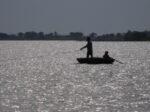Terry Chapin receives Volvo Environment Prize 2019
An ecology professor who has spent decades doing research and field work in the challenging conditions of the Arctic is the winner of the Volvo Environment Prize 2019. Over the 30 years of the prize, the jury has often selected prize-winners whose research has proven to be vital in shaping the modern sustainability agenda. Terry Chapin is no exception to this rule. As an Ecology Professor at the University of Alaska, Fairbanks, he has spent long periods in the tundra of Siberia and Alaska, studying processes that we now know can have dramatic effects on the global climate. For the past 10 years he has been linking his knowledge of ecology to ethics, creating the concept of Earth Stewardship. Decades ago, only a few scientists, including Terry Chapin, began to understand the impact of climate change on the carbon-rich tundra, permafrost and boreal forests of the Northern Hemisphere. Says Terry Chapin: – Climate change happens twice as fast in Alaska and in the rest of the Arctic as for the globe as a whole. And since Alaska is so sensitive to temperature, this is where processes are going to be most affected. It is already happening. Wildfires have always occurred in the Alaskan wilderness, but the past decade they have increased dramatically. The wildfires are larger and more frequent, due to warmer temperatures and drier weather conditions. That is why the city of Fairbanks, Alaska, located in pristine wilderness and far away from polluting industries, can for weeks have some of the worst air quality found anywhere on Earth when nearby wildfires spread their vast plumes of smoke. Scientists at the University of Alaska, Fairbanks, are closely monitoring the changes that are occurring in the frozen ground. Thawing releases carbon under anaerobic conditions to emit methane, a powerful greenhouse gas. […]










